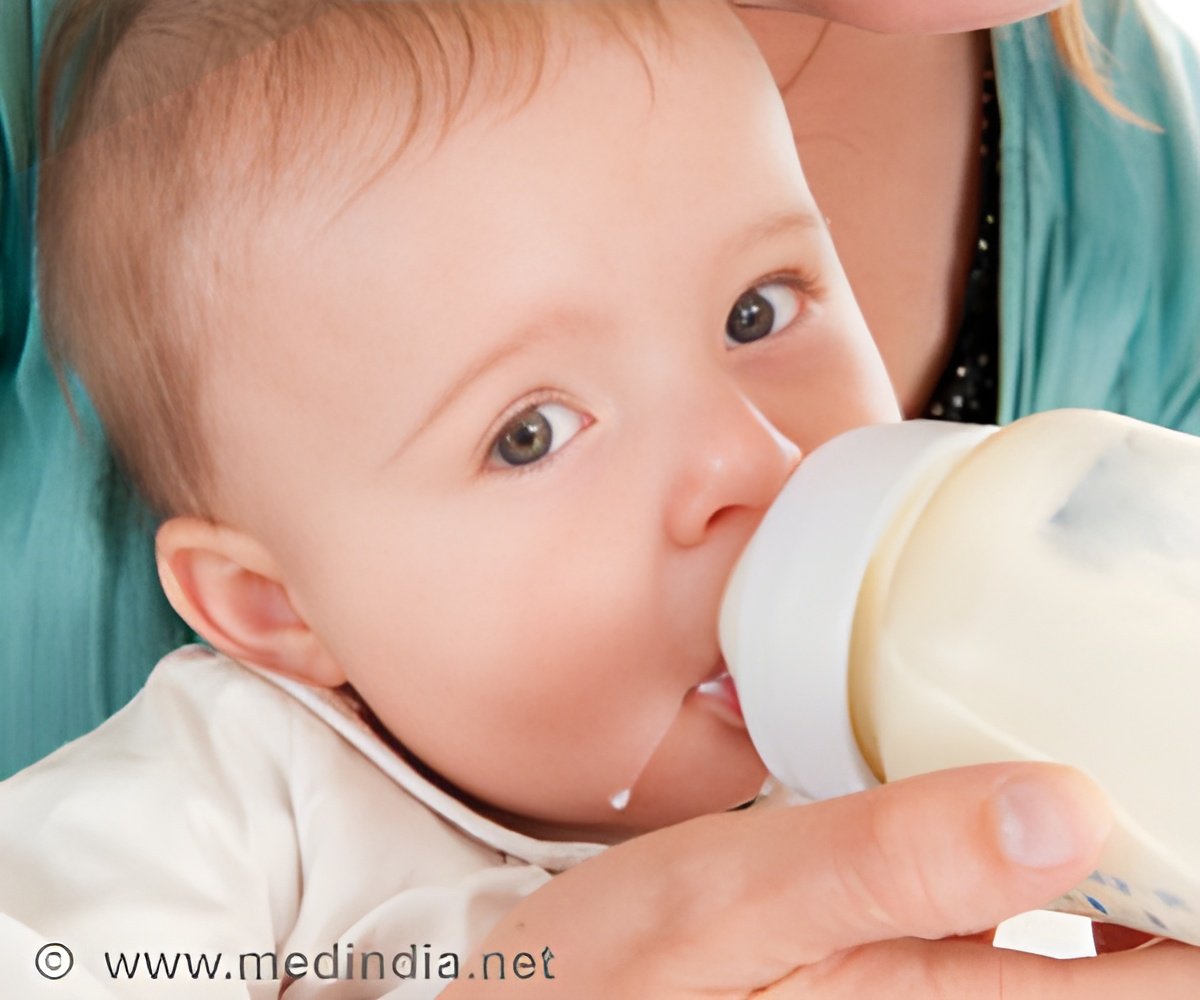Infants who were fed with at least six-ounce bottles had about half a pound (0.21 kg) more weight gain by six months when compared with babies fed from smaller bottles.

‘Formula-fed infants gain extra weight than those who are exclusively breastfed because parents were feeding them with larger bottles.’





About 45 percent of the infants were fed from bottles that held at least six ounces of baby formula. The researchers found that infants who were fed with at least six-ounce bottles had about half a pound (0.21 kg) more weight gain by six months when compared with babies fed from smaller bottles.
“Every baby is different, but we know that a two-month-old infant will generally take four ounces per feed,” said lead study author Dr. Charles Wood, a pediatrics researcher at the University of North Carolina at Chapel Hill.
“Larger bottles may mean parents are more likely to overfeed their infants, contributing to more weight gain,” Wood added.
To determine how bottle size influences weight gain in infants, the researchers monitored 386 babies whose parents fed them only baby formula. About 41 percent were black, 35 percent were Hispanic, and 23 percent were white.
Advertisement
In the journal Pediatrics, the researchers reported that on an average, babies weighed about 7.1 pounds (3.2 kg) at birth, 11.7 pounds (5.3 kg) at two months, and 17.6 pounds (8 kg) at six months.
Advertisement
The limitation of the study is that researchers didn’t directly measure how much babies drank, the authors note.
The researchers did not look at how bottle size changes over time during the study period. Parents could have used different sizes of bottles but gave babies multiple bottles at each feeding.
“One challenge for bottle-fed babies is that they may have a harder time than breastfed infants learning to sense when they’re full,” said Karen Bonuck, a pediatrics researcher at Albert Einstein College of Medicine and Montefiore Medical Center in New York who wasn’t involved in the study.
“Parents who purchase larger bottles may be doing so out of a desire to express nurturance through feeding,” Bonuck added.
“The problem with this parental impulse is that those first few months are a crucial time for babies to figure out when they’re full,” said Dr. Wendy Sue Swanson, a pediatrician at Seattle Children’s Hospital who wasn’t involved in the study.
“It’s known that rapid weight gain is a risk for obesity, and it’s also thought that the first few months of life help develop our satiety responsiveness – how our cravings and sense of fullness while eating feel – and therefore if fed excess amounts during that time we may set children up for a bigger challenge with overweight later in life,” said Swanson.
Source-Medindia















